Excessive watering is one of the most common factors contributing to poor turf health.
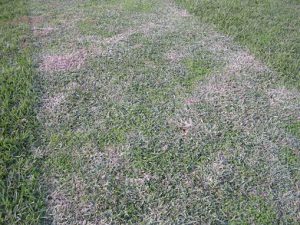
In Central Florida, turf needs less water in the winter. When the temperatures are cooler, there’s less evaporation, and grass goes semi-dormant.
Likewise, during the peak of our summer rainy season (June, July, & August), rainfall typically provides more than enough water to keep the lawn happy and healthy, without any need for supplemental sprinkler use.
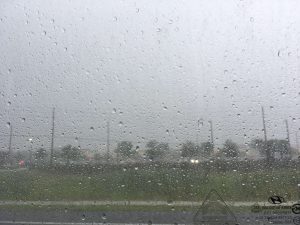
The end result is that if you take a “set-it-and-forget-it” approach to the sprinkler timer, the lawn is probably getting too much water for about 50% of the year!
Don’t get me wrong. Turf-grass will typically need some supplemental watering at certain times of year, particularly during our hot, dry spring & fall months. But over-watering grass when it doesn’t need it can do at least as much harm as under-watering. Potential problems can include shallow, weak root development, increased susceptibility to diseases and drought stress, insect damage, root-rot, and excessive weed growth. (Not only that, but it can contribute to some really high water bills too…)
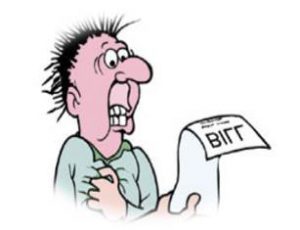
Preventing overwatering:
In Florida, all sprinkler systems are actually required to be equipped with “technology that inhibits or interrupts operation of the system during periods of sufficient moisture.” In other words, in July, when it’s been raining cats and dogs, your neighbor’s sprinklers shouldn’t be able to run.
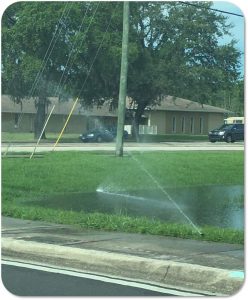
As a result, the ubiquitous roof-mounted rain shut-off device (RSD) had been installed on gutters all across Florida in an attempt to help curb wasteful watering. Chances are pretty good that if you have a sprinkler system, you have one of these…
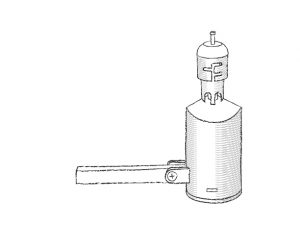
While these rain sensors can certainly provide some water savings, there’s a few reasons why they don’t always prevent someone from drowning their lawn:
- Often, the “dry-out” time for a roof-mounted rain sensor is different than the dry-out rate of the soil. That means the sprinkler system may be ready to resume watering before the lawn really needs it…
- These devices don’t last forever. They actually require periodic testing, maintenance, and/or replacement in order to keep performing. (Q: When was the last time you climbed a ladder and checked your RSD?) But many Floridians leave their sprinklers running on “AUTO” all year long, wrongly assuming that little sensor is up there saving them tons of water…when in reality, it may just be a gutter decoration…
- These sensors can only detect rainfall. That means that it can’t stop you from re-watering a lawn that’s still soaked from the previous sprinkler cycle…
Measuring the moisture where it counts…at the roots.
Just over a decade ago, a UF/IFAS blogpost was published entitled “Soil-moisture Sensors May Produce Big Water Savings for Homeowners, UF Study Shows.” It explained how sensors buried in the ground could help take the guesswork out of watering the lawn, and potentially provide big water savings for Florida residents. Stay tuned for the next blogpost, when I’ll take a look at soil moisture sensors – ten years later – to see whether homeowners are achieving those ‘big water savings’ mentioned in the ’07 blogpost.
About UF/IFAS Extension:
UF/IFAS Extension serves as a source of non-biased, research-based information for the residents, businesses, and communities of Florida, providing educational materials and programs for adults and youth. We proudly “provide solutions for your life.”
UF/IFAS has local Extension offices throughout the state! Click to find your local office!
by Frank Galdo
 0
0
